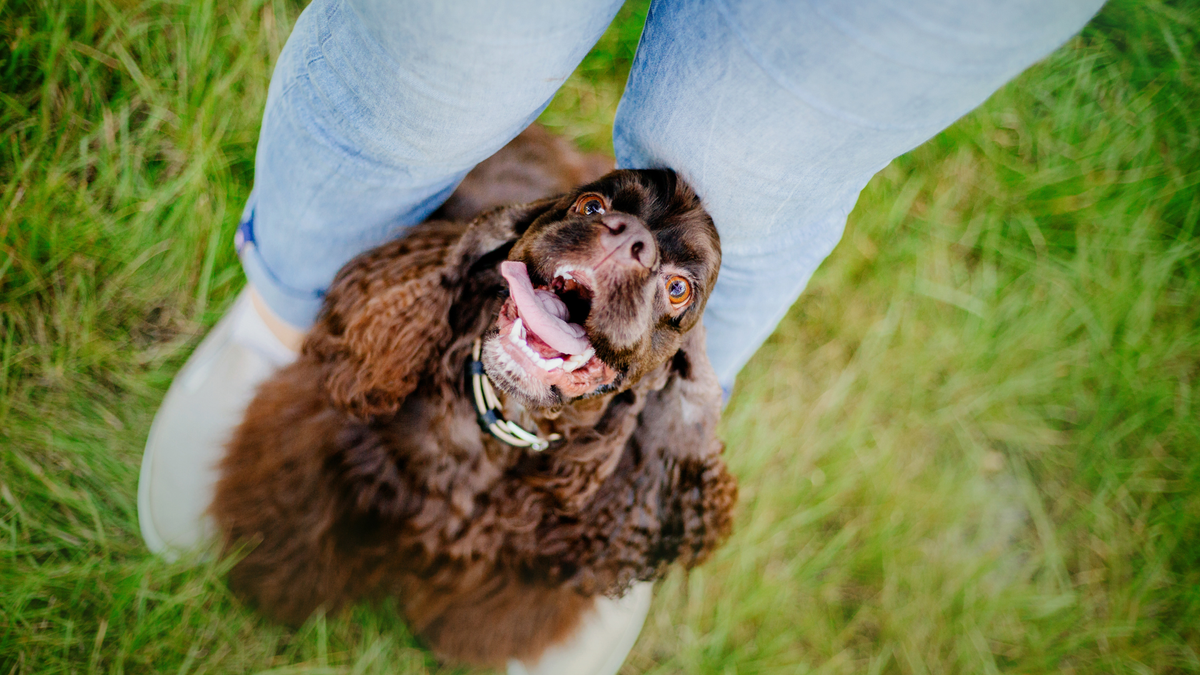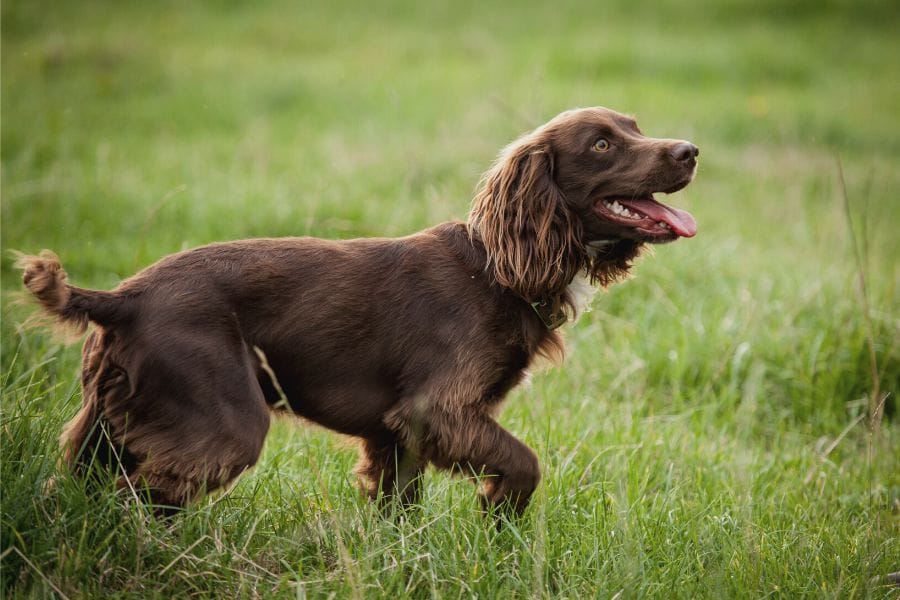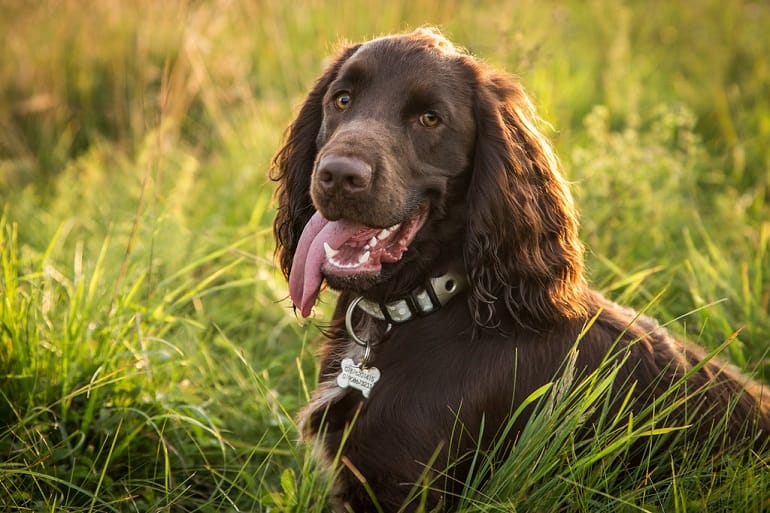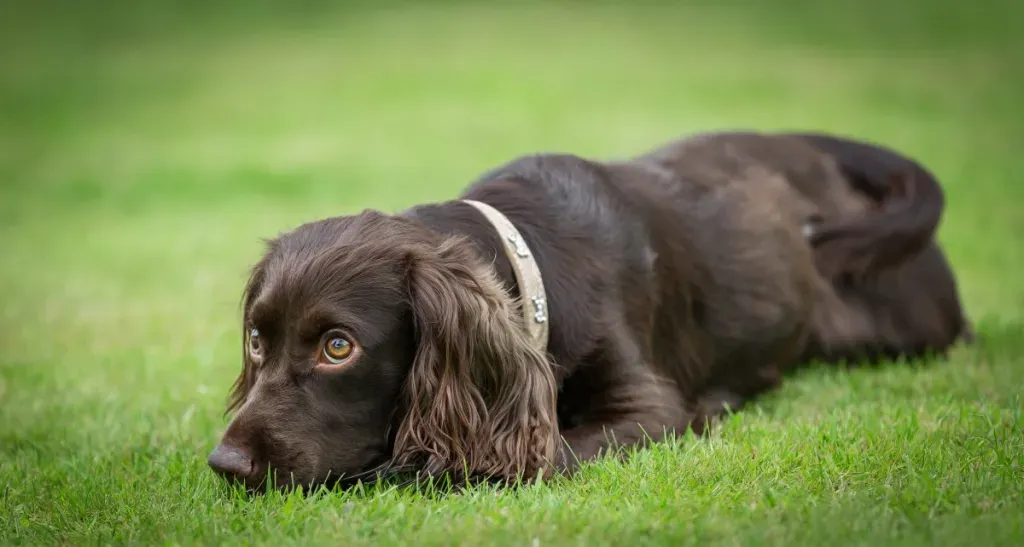The Boykin Spaniel, a breed known for its boundless energy, intelligence, and unwavering loyalty, holds a special place in the hearts of dog enthusiasts. In this comprehensive guide, we'll delve into the captivating world of the Boykin Spaniel, exploring their origins, distinctive characteristics, care essentials, training insights, and more.
Introduction to the Boykin Spaniel
The Boykin Spaniel, often referred to as the "swamp poodle," is a versatile and enthusiastic breed with a strong work ethic and a heart full of devotion. Whether as a skilled hunting partner or a cherished family member, the Boykin Spaniel's presence leaves a lasting impact.
Origins and History
The Boykin Spaniel's journey began in South Carolina, where their exceptional hunting skills and friendly nature endeared them to locals. Originally bred for waterfowl hunting, their adaptability and versatility have made them cherished companions in a variety of roles.
Distinctive Physical Traits
The Boykin Spaniel's physical attributes contribute to their unique charm:
1. Medium Size: Boykin Spaniels are medium-sized dogs with a well-proportioned build, ideal for agility and endurance.
2. Rich Coat Color: Their rich, liver-colored coat is a defining feature, often complemented by charming white markings.
Personality and Temperamenti
The Boykin Spaniel's personality is a delightful blend of energy, intelligence, and affection:
1. Energetic and Enthusiastic: Boykin Spaniels are brimming with energy and enthusiasm, making them excellent companions for active individuals and families.
2. Intelligent and Trainable: Their intelligence and eagerness to please make them quick learners, excelling in various training activities.
3. Affectionate and Loyal: Boykin Spaniels form strong bonds with their human companions, showing unwavering loyalty and a loving nature.
4. Sociable and Friendly: They are generally sociable and get along well with people, children, and other pets when properly socialized.
Grooming and Coat Care
Boykin Spaniels have coat care needs to keep them looking and feeling their best:
1. Regular Brushing: Regular brushing helps maintain their coat's condition, prevents matting, and reduces shedding.
2. Ear Care: Their hanging ears require regular cleaning and inspection to prevent ear infections.
3. Nail and Dental Care: Routine nail trimming and dental care contribute to their overall well-being.
Nutritional Needs and Feeding Guide
Providing a balanced diet is essential for your Boykin Spaniel's health:
1. High-Quality Dog Food: Choose a high-quality commercial dog food that meets their nutritional needs based on age, size, and activity level.
2. Portion Control: Follow feeding guidelines to prevent overfeeding and maintain a healthy weight.
3. Protein and Energy: Opt for dog food with a balanced blend of proteins, healthy fats, and carbohydrates to support their active lifestyle.
4. Hydration: Always provide access to fresh and clean water to keep your Boykin Spaniel hydrated.
Exercise and Physical Activity
Satisfying your Boykin Spaniel's need for exercise is crucial for their well-being:
1. Daily Exercise: Engage in daily walks, runs, or play sessions to help them burn off energy and stay mentally stimulated.
2. Mental Stimulation: Provide puzzle toys, interactive games, and training exercises to keep your Boykin Spaniel mentally sharp.
3. Swimming Opportunities: Given their love for water, swimming is an excellent way to provide both exercise and enjoyment.
Training Your Boykin Spaniel
Training your Boykin Spaniel is a rewarding journey that enhances their behavior and strengthens your bond:
1. Positive Reinforcement: Use positive reinforcement techniques, such as treats and praise, to encourage desired behaviors.
2. Obedience Training: Teach essential commands like "sit," "stay," "come," and "heel" to ensure their safety and obedience.
3. Retrieving Skills: Capitalizing on their natural retrieving instincts, engage them in fetching games and activities.
Health Considerations
Caring for your Boykin Spaniel's health is paramount:
1. Regular Veterinary Check-ups: Schedule routine check-ups to monitor their overall health, receive vaccinations, and address any concerns.
2. Hip Dysplasia: Boykin Spaniels can be prone to hip dysplasia, so maintaining a healthy weight and providing joint supplements can help.
3. Eye Care: Regularly clean their eyes and monitor for any signs of irritation or infection.
4. Heartworm Prevention: Due to their outdoor activities, heartworm prevention is crucial to keep them safe from this serious condition.
Creating a Stimulating Home Environment
Fostering mental and physical engagement enhances your Boykin Spaniel's well-being:
1. Interactive Dog Toys: Provide toys that challenge their problem-solving skills and keep them entertained.
2. Playdates and Socialization: Arrange playdates and social interactions with other dogs to fulfill their social needs.
3. Training Games: Incorporate training sessions and games into their daily routine to keep their minds active.
Compatibility with Other Pets
Boykin Spaniels can coexist harmoniously with other pets:
1. Early Socialization: Introduce your Boykin Spaniel to other pets at an early age to foster positive relationships.
2. Supervised Interactions: Supervise interactions between your Boykin Spaniel and other pets, especially during the initial stages.
Traveling and Adventures
Including your Boykin Spaniel in your travel plans can create wonderful memories:
1. Pet-Friendly Destinations: Research and choose pet-friendly destinations and accommodations for a comfortable trip.
2. Travel Essentials: Pack necessities such as food, water, medications, and familiar items to ensure their comfort.
3. Safety Measures: Secure your Boykin Spaniel during car rides with a harness or carrier and ensure their identification is up-to-date.
Size and Lifespan
The size of a dog can significantly influence its lifespan, with smaller breeds often living longer than their larger counterparts. However, various factors beyond size come into play when considering a dog's longevity, making each canine's journey unique.
1. Size Categories
Dogs are generally categorized into three size groups:
- Small Breeds: Generally weigh less than 20 pounds (9 kilograms).
- Medium Breeds: Weigh between 20 to 50 pounds (9 to 23 kilograms).
- Large Breeds: Weigh over 50 pounds (23 kilograms).
2. Factors Affecting Lifespan
Several factors impact a dog's lifespan, regardless of its size:
- Genetics: Inherited traits from parents play a significant role in a dog's overall health and longevity.
- Breed-Specific Traits: Certain breeds are prone to genetic health issues that can affect their lifespan.
- Diet and Nutrition: Providing a balanced diet tailored to a dog's specific needs supports their well-being.
- Exercise and Activity: Regular physical activity and mental stimulation contribute to a dog's overall health and lifespan.
- Veterinary Care: Routine check-ups, vaccinations, and preventive care are vital for early detection and treatment of health issues.
- Weight Management: Maintaining a healthy weight reduces the risk of obesity-related health problems.
- Environmental Factors: A safe and stimulating living environment impacts a dog's quality of life.
- Spaying/Neutering: These procedures can influence a dog's susceptibility to certain diseases.
3. Small Breeds: A Closer Look
Small dog breeds, such as Chihuahuas and Miniature Poodles, often have longer lifespans compared to larger breeds. Some small breeds can live well into their late teens and even early twenties.
4. Medium Breeds: A Balance of Size and Lifespan
Medium-sized breeds, like Beagles and Cocker Spaniels, strike a balance between size and lifespan. They generally live around 10 to 15 years.
5. Large Breeds: Majestic Size, Unique Lifespan
Large breeds, including Great Danes and Saint Bernards, tend to have shorter lifespans. Their size contributes to specific health challenges, and their average lifespan may range from 8 to 12 years.
6. Promoting Longevity
To enhance a dog's longevity, regardless of size:
- Healthy Diet: Provide high-quality, age-appropriate food and monitor portion sizes to prevent obesity.
- Regular Exercise: Engage in regular physical activity that aligns with a dog's breed and energy level.
- Routine Veterinary Care: Schedule regular check-ups and vaccinations to catch and address health issues early.
- Weight Management: Maintain a healthy weight to reduce the risk of joint problems and other health concerns.
- Mental Stimulation: Offer interactive toys, training sessions, and mental challenges to keep their minds sharp.
- Quality Living Environment: Create a safe and stimulating home environment that supports their physical and emotional well-being.
While size does influence a dog's lifespan, various factors work in tandem to shape their individual journey. Regardless of size, every dog deserves a life filled with love, care, and opportunities to thrive.
Selecting a Reputable Breeder
Choosing a reputable breeder ensures a healthy and well-adjusted Boykin Spaniel:
1. Research: Thoroughly research potential breeders, ask for references, and gather information about their breeding practices.
2. Health Screenings: A reputable breeder conducts health screenings on their breeding dogs to minimize the risk of genetic health issues.
3. Puppy Socialization: Choose a breeder who prioritizes early puppy socialization to ensure well-rounded and confident dogs.
Average Price
The cost of a Boykin Spaniel can vary based on factors such as breeder reputation and location. On average, expect to pay between $800 to $1,200 for a puppy from a reputable breeder.
Dogs' Roles in Society
Dogs have been our faithful allies for centuries, forging a bond that transcends time. Their roles have evolved from mere helpers to integral members of our families and society. Their unwavering loyalty, intelligence, and adaptability make them indispensable contributors to various aspects of human life.
1. Companionship and Emotional Support
At the heart of every dog's role is their unparalleled companionship and emotional support. Dogs provide unwavering love, non-judgmental acceptance, and a sense of connection that can significantly improve the mental and emotional well-being of their human companions.
2. Service and Assistance Dogs
Service dogs are trained to perform specific tasks that aid individuals with disabilities. Whether guiding visually impaired individuals, alerting those with hearing impairments, or assisting those with mobility challenges, service dogs enhance independence and quality of life.
3. Therapy and Healing Companions
Therapy dogs offer comfort and healing to people in various settings, including hospitals, nursing homes, and schools. Their soothing presence and affectionate nature provide solace and promote emotional well-being.
4. Working Partners in Various Fields
Dogs have become invaluable working partners in diverse fields such as law enforcement, agriculture, and customs. Their keen senses and unparalleled dedication aid in tasks such as drug detection, tracking, and herding.
5. Search and Rescue Heroes
Search and rescue dogs exhibit exceptional skills in locating missing persons in various environments. Their acute sense of smell, agility, and determination make them indispensable assets during life-saving missions.
6. Canine Athletes and Entertainers
Dogs participate in various sports and entertainment activities, showcasing their athleticism, agility, and intelligence. Events like agility trials, flyball, and dog shows highlight their capabilities and bring joy to audiences.
7. Education and Awareness
Dogs serve as ambassadors for responsible pet ownership and animal welfare. Educational programs and events featuring dogs promote awareness about proper care, training, and the importance of treating animals with kindness.
8. Community Enrichment and Social Interaction
Dogs foster social interaction and community engagement. Dog parks, meetups, and events centered around dogs provide opportunities for people to connect, share experiences, and form lasting friendships.
In summary, the roles that dogs play in society are both diverse and profound. From service and therapy to entertainment and companionship, dogs enhance our lives in countless ways. Their unconditional love and remarkable abilities forge connections, inspire positive change, and remind us of the profound impact that these remarkable animals have on our world.
Conclusion
In conclusion, the Boykin Spaniel's dynamic personality, versatility, and loyalty make them cherished companions for active individuals and families. By providing attentive care, proper training, and a stimulating environment, you can ensure that your Boykin Spaniel thrives and brings joy to your life for many years to come.
FAQs (Frequently Asked Questions)
Q1: Are Boykin Spaniels good with children?
A: Yes, Boykin Spaniels are generally good with children and enjoy interactive play and companionship.
Q2: Do they require a lot of exercise?
A: Yes, Boykin Spaniels have high energy levels and need regular exercise to stay happy and healthy.
Q3: Are they suitable for apartment living?
A: While they have the energy to burn, Boykin Spaniels can adapt to apartment living if provided with sufficient exercise and mental stimulation.
Q4: Do they get along with other dogs?
A: Boykin Spaniels are social dogs and can get along well with other dogs, especially with proper socialization.
Q5: Are they prone to any health issues?
A: While generally healthy, Boykin Spaniels can be prone to hip dysplasia and certain eye conditions. Regular veterinary care is important.
Q6: Can they be left alone for long periods?
A: Boykin Spaniels thrive on human interaction and may become anxious if left alone for extended periods. Providing companionship is crucial.
Q7: Are they good swimmers?
A: Yes, Boykin Spaniels are natural swimmers and enjoy water-related activities.
Q8: Do they require professional grooming?
A: Regular grooming at home, including brushing and ear cleaning, can suffice for their coat care. Professional grooming may be needed occasionally.

Q9: Are they easy to train?
A: Yes, Boykin Spaniels are intelligent and eager to please, making them responsive to positive and consistent training methods.
Want to know more about the Boykin Spaniel?





